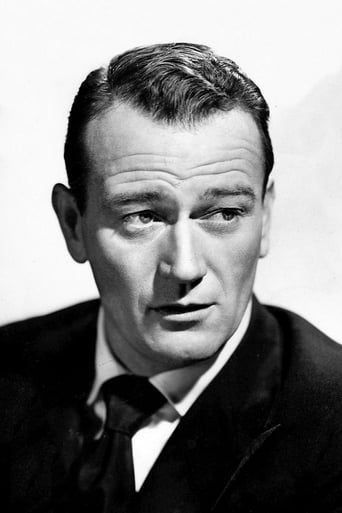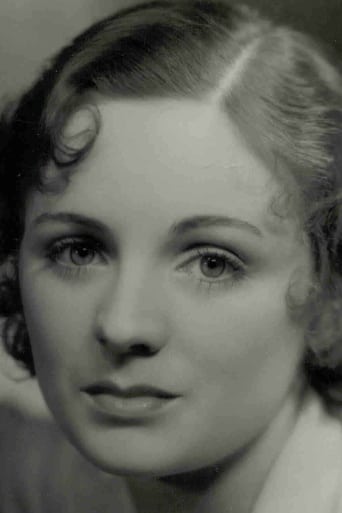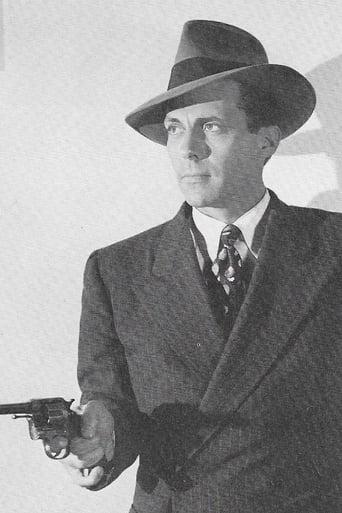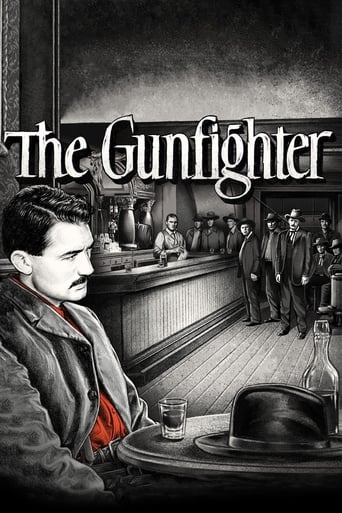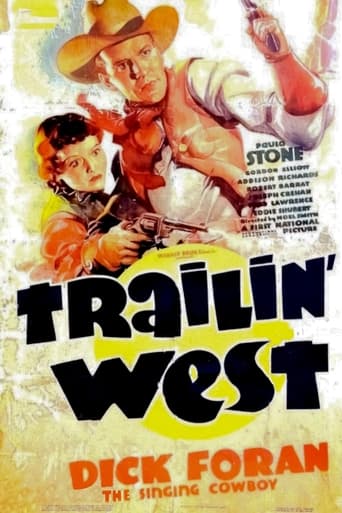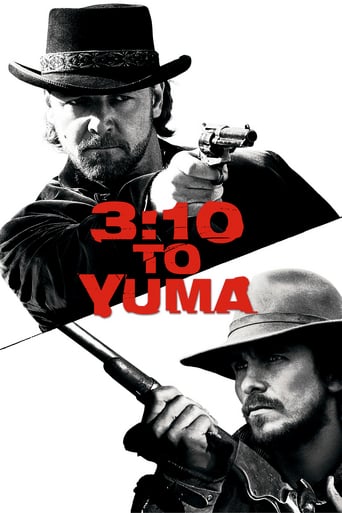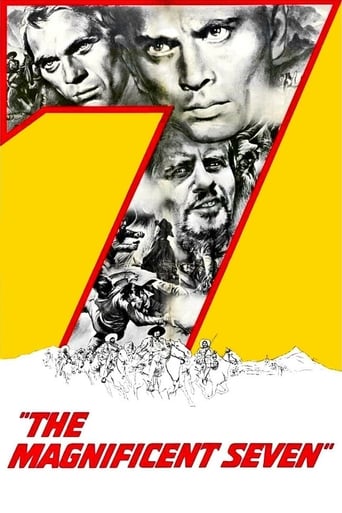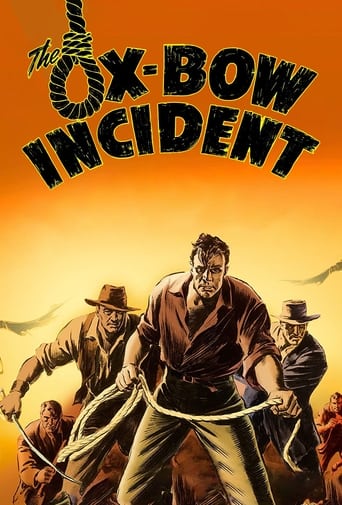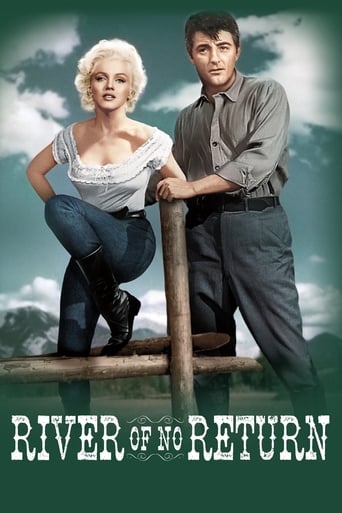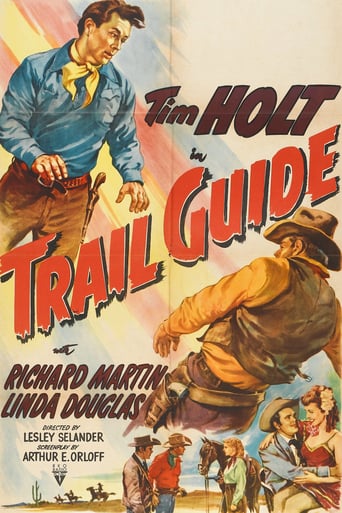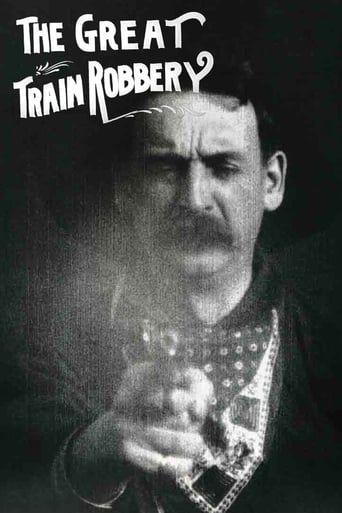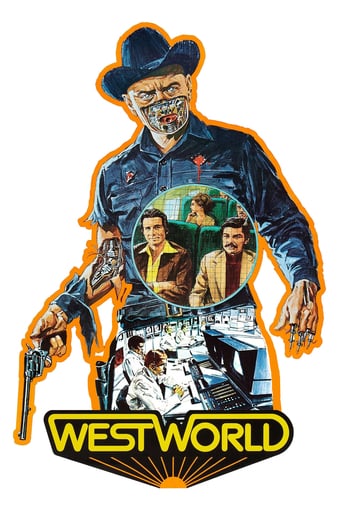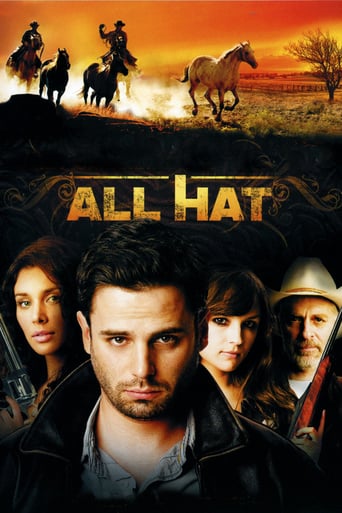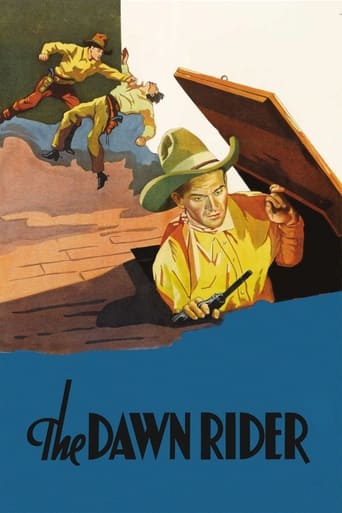
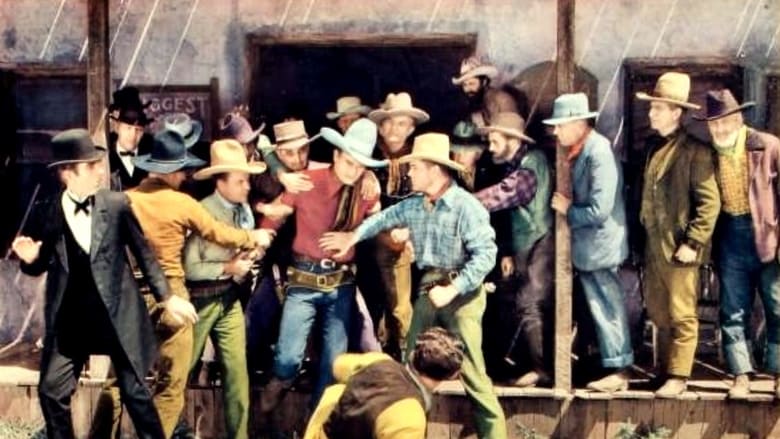
 Watch Now
Watch Now





The Dawn Rider (1935)
 Watch Now
Watch Now





When John Mason's father is killed, John is wounded. Attracted to his nurse Alice, a conflict arises between him and his friend Ben who plans to marry Alice. John later finds the killer of his father but goes to face him not knowing Ben has removed the bullets from his gun.
Watch Trailer
Cast


Similar titles
Reviews
Simply A Masterpiece
If the ambition is to provide two hours of instantly forgettable, popcorn-munching escapism, it succeeds.
This story has more twists and turns than a second-rate soap opera.
The movie's not perfect, but it sticks the landing of its message. It was engaging - thrilling at times - and I personally thought it was a great time.
. . . The Wayne Warp (not to be confused with the similar Oedipus Complex, in which you kill your father and marry your mom). In the Straight Version of The Wayne Warp, SOMEONE ELSE kills your dad, and then you marry HIS sister. So when Rudd guns down John-John's (that is, John once again playing a "John") Pops, John just HAS to marry Rudd's sister Alice, even though John's friend and coworker Ben buys Alice an engagement ring a few minutes into THE DAWN RIDER. Of course, The Wayne Warp begs the question, "What if a guy whose siblings are all brothers offs Daddy, or what if Votre Noster is gunned down by an only child?" Psychiatry gives us the answer that such events would provide perfect opportunities to unleash all the latent subtexts that are woven through Wayne's work like a Gay Crazy Quilt. Americans have responded to The Wayne Warp much better than the Oedipus Complex, since the former usually involves characters exercising the Second Amendment (as in THE DAWN RIDER), while the latter involves incest, which is beyond the Sex Education Level of U.S. Red Staters (and perhaps too close to home for many of them).
not a bad western from the famous Lone Star stable of productions. John Wayne plays a man who rides into town to catch up with his father, but before he get's to do that, he sees his old friend, and they share a few drinks.. they wind up getting into a fight, but it's spilt milk really,, so he goes and sees his father and his father get's shot in town. the son played by the Duke,, get's hurt and seeks medical attention from his friend's girlfriend, unbeknownst to him,, they fall in love,, and his friend one night while he is drunk decides to remove the bullets from his gun,, because he knows that the man that killed his father and his friend are set to have it out in the street High Noon style.. interesting little western from Lone Star a fairly decent watch,, also with Yakima Cannut.
John Wayne embarked on a promising acting career with director Raoul Walsh's epic wagon train spectacle "The Big Trail" (1930), one of Fox Studio's biggest and most ambitious westerns which also pioneered the widescreen process. Unfortunately, both for Wayne and what later came to be called 'Cinemascope,' audiences flocked neither to see him nor this big-budgeted oater. Consequently, Wayne languished in B-westerns, Saturday matinée serials, and supporting parts for about a decade before director John Ford rescued him from obscurity with his groundbreaking horse opera "Stagecoach" (1939) co-starring Claire Trevor and Thomas Mitchell. This top-notch revenge western not only revived the Duke's career but also ushered in a new era of maturity for westerns. Meantime, until "Stagecoach," when Wayne wasn't toiling in cheap westerns, he played bit parts in bigger movies, such as "The Deceiver" where he played a corpse, as well as "His Private Secretary" and "Baby Face," biding his time until Ford found him. Wayne took second billing to Colonel Tim McCoy in three Columbia Pictures' sagebrushers "The Range Feud," "Texas Cyclone," and "Two-Fisted Law." During this same period, Wayne toplined three sprawling Mascot Pictures serials: "The Shadow of the Eagle," "The Hurricane Express, and a French Foreign Legion version of "The Three Musketeers." Warner Brothers contracted him for a string of modest westerns, including "Ride Him, Cowboy," "The Big Stampede," "Haunted Gold,""The Telegraph Trail," "Somewhere in Sonora," and "The Man from Monterey," but Jack Warner refused to renew his contract. At the same time, Wayne took small parts in non-western melodramas at Warners. The Duke moved on to Monogram Pictures. He starred in 16 westerns for Lone Star Productions. Compared to his westerns at Columbia and Warners, the Lone Star oaters were primitive, poverty row productions. "The Dawn Rider" appeared near the end of the Lone Star series. In fact, "The Dawn Rider" was his penultimate appearance for Lone Star Pictures and exemplified the kind of movies that he made for director Robert N. Bradbury. By this time, Wayne was displaying some of the swaggering, masculine charm that he parlayed later into a million dollar career courtesy of John Ford."The Dawn Rider" opens as Ben McClure (Reed Howes) and a town undertaker named Bates discuss the sheer lack of excitement in town. Bates shakes his head and observes morosely, "Oh, this town is too healthy. If something don't happen soon, I'll have to vamoose." Suddenly, they witness a scuffle between two cowpokes on the main street. McClure intervenes, brandishes his six-shooter, and forces the man who started the fight to dance in front of a crowd of folks by shooting at the fellow's feet. This bullet ballet was a western staple. McClure deliberately misses the man's boots by inches. The punished cowpoke collapses in a mud hole. John Mason (John Wayne) rides into town and helps this forlorn figure out of the mud hole. Afterward, Mason challenges McClure to a fight. They tangle briefly in a fist-flying brawl that concludes with them shaking hands. The same day Mason returns home, he watches in horror as his father, Dad Mason (Joseph De Grasse) is shot to death during an Express Company hold-up. All that Mason can make out of his father's murderer is a polka dot bandana. You see, the bad man shoots Dad through a broken window. Afterward, Mason pursues the villains on horseback and blows a couple of the dastards out of their saddles with his well-aimed shots. The villains wound Mason during the fracas. Ironically, it turns out that the chief villain's sister, Alice Gordon (Marion Burns), nurses our hero back to health. Meanwhile, the chief villain, Rudd Gordon (Dennis Moore), pits our ten-gallon hero against his best friend, McClure, and tells McClure that Mason is stepping out with his girlfriend. Of course, Ben is jealous and takes all the bullets out of his gun before he realizes that Rudd has tricked him.This dusty, bare-bones horse opera features a couple of fistfights and gunfights. The scenery is as rugged as the heroes are virtuous, and the villains are nefarious. Stuntman Yakima Canutt plays an evil barkeeper who urges Rudd to kill Mason. Later, Wayne and Canutt battle it out. Watch the ring that Ben gets for Alice because it is a major plot point. Christian Slater stars in the 2012 remake that beefs up the plot considerably but sticks to the basics. The villains in the remake wear flour sacks for disguises, and Slater hero is haunted by his past in a Mexican prison. The John Wayne hero is unbesmirched by comparison. He doesn't have a U.S. Marshal (Donald Sutherland) riding after him with an arrest warrant. The remake includes the plot point about Ben's stolen ring, but the ranch that Rudd and Alice own is endanger of being repossessed. Some of the flavorful dialogue in the original screenplay credited to Robert N. Bradbury and Wellyn Totman, based on a story by Lloyd Nosler is quite good. Bradbury derives some amusing comic relief from the town's sole undertaker. None of this humor makes it into the remake that uses the F-word about ten times and contains more graphic gunfights. No, Christian Slater is no John Wayne, but the remake surpasses "The Dawn Rider."
As one of the last 'Lone Star' productions this is one of the best in many ways. It has more character interaction and development, and even a love triangle. As others have noted, all the scenes work toward building up to the climax. It also features three early versions of some of the great clichés of the Western.William K. Everson quotes from Variety reviews of 1908-1909 westerns that mention that those films were competently made but "It all has been done so often before, and usually better." Well, here 27 years later we get these new wonderful clichés all excellently done: 1) the hero and a stranger meet and fight, then go to the bar for a drink as pals and become 'pards' (John Wayne as John Mason vs. Reed Howes as Ben McClure in the opening scene); 2) the 'get out of town by four o'clock or I'll come gunning for ya' saloon threat by the villain (the handsome, evil voiced, quintessential bad guy Denny Moore as Rudd Gordon) to John Wayne; and then 3) the final gunfight down the middle of Main Street, during which the tension builds with good cross cutting and the fact that Mason doesn't know his own gun is loaded with blanks! To back track on the plot, Mason's father is killed by Rudd in a robbery Mason witnesses. Chasing Rudd, Mason is shot and nursed back to health, at Ben McClure's place, by Rudd's sister Alice, who falls for Mason (shown in a telling scene where he talks about boots, but she thinks he's talking about a wedding ring). Ben is in love with Alice, and thinking Mason has designs on her, puts the slugs in his gun. Ben later realizes his mistake in a moving silent sequence, and then rides off to stop, warn or help Mason in his showdown with Rudd.Yakima Canutt gets to play a villainous barkeep, and do some good stunt work as well. No George Hayes in this one, but everything works fine without him. Plus of course, we have John Wayne! You can the sense the development of his patented swagger as he walks down the street during the showdown. So, we get one of the better 'Lone Stars' here. I give it a 5.


